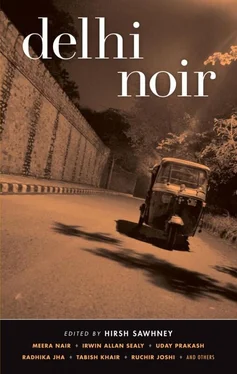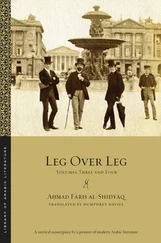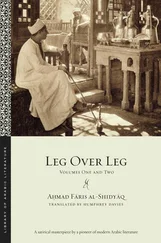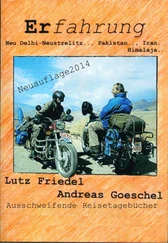Omair Ahmad - Delhi Noir
Здесь есть возможность читать онлайн «Omair Ahmad - Delhi Noir» весь текст электронной книги совершенно бесплатно (целиком полную версию без сокращений). В некоторых случаях можно слушать аудио, скачать через торрент в формате fb2 и присутствует краткое содержание. Город: New York, Год выпуска: 2009, ISBN: 2009, Издательство: Akashic Books, Жанр: Детектив, на английском языке. Описание произведения, (предисловие) а так же отзывы посетителей доступны на портале библиотеки ЛибКат.
- Название:Delhi Noir
- Автор:
- Издательство:Akashic Books
- Жанр:
- Год:2009
- Город:New York
- ISBN:978-1-933354-78-1
- Рейтинг книги:3 / 5. Голосов: 1
-
Избранное:Добавить в избранное
- Отзывы:
-
Ваша оценка:
- 60
- 1
- 2
- 3
- 4
- 5
Delhi Noir: краткое содержание, описание и аннотация
Предлагаем к чтению аннотацию, описание, краткое содержание или предисловие (зависит от того, что написал сам автор книги «Delhi Noir»). Если вы не нашли необходимую информацию о книге — напишите в комментариях, мы постараемся отыскать её.
Brand-new stories by
Delhi Noir — читать онлайн бесплатно полную книгу (весь текст) целиком
Ниже представлен текст книги, разбитый по страницам. Система сохранения места последней прочитанной страницы, позволяет с удобством читать онлайн бесплатно книгу «Delhi Noir», без необходимости каждый раз заново искать на чём Вы остановились. Поставьте закладку, и сможете в любой момент перейти на страницу, на которой закончили чтение.
Интервал:
Закладка:
She folded the letter and put it in her packet. Taking a sip of her tea, she thought coldly that whoever Triloki had gone to confront hadn’t been very impressed by his IB background.
She recalled the voice over the cell phone this morning and figured that if it was the same man, Triloki hadn’t stood a chance.
Suddenly, unexpected tears came to her eyes. Such a waste. The poor fuck. What was the point of doing penance now? So he had blackmailed Suparna for a few lakhs — big shit. Her husband was a property developer; God only knew how much of their money was stained with blood and deceit.
In a burst of sudden anger she punched Arjun Singh’s number into her cell phone. He picked up on the second ring.
“Hello? Mr. Singh, this is Suhasini Das. I am already here. Can we meet now?”
He didn’t ask why, just told her to come. There was some satisfaction in that, in getting on with work rather than having to wait. She reached the gate of his house in five minutes. The guard had been forewarned of her arrival, and he escorted her down the long driveway to the house.
Something was subtly wrong here. She could just sense it, like something glimpsed out of the corner of her eye. There was a long car parked in front of the house, a canary-yellow Chevrolet, beautifully maintained and at least a couple of decades old. And the house too seemed somehow old and yet new, like something from a classic film. It was a beautiful bungalow out of place here and maintained in a way that had gone out of style twenty years ago.
The guard let her into the house and asked her to sit in the drawing room. As soon as he was gone, she got up to look around. Things felt even stranger here. The calendar hanging on the wall was out of date — in fact it showed the months of 1984. But it was brand-new, as if somebody had just unpacked it. There was a large poster for the Hindi film Naam that she remembered from her college days, but again the thing looked almost untouched, un-aged.
“Thank you for coming here, Ms. Das.”
When she turned to face the person entering from a side door, her voice caught in her throat. He could have been an actor in some period film. The hairstyle and the cut of clothes were perfect for the early ’80s. What was even more disconcerting was that she knew Arjun Singh was in his late forties, yet the man standing before her looked like a twenty-year-old. It was only when she stepped up closer to shake hands that she noticed the small wrinkles, the skin at the edge of his neck, the very subtle signs of age almost perfectly hidden.
“I’m sorry for the rush, Ms. Das, but I have very little time. Mr. Triloki has been working on a case for me for five months. There is a man who I have been looking for... for a very long time, someone who took something very precious from me.”
Suhasini nodded. It sounded a not-too-unusual story.
“Mr. Triloki located that person,” Arjun Singh said, “and was supposed to set up a meeting in two days. Except then Triloki disappeared.”
“Who was he searching for?” she asked.
“Rajan Pandey,” Arjun Singh said, and seeing the blank look on her face, explained, “He isn’t a high-profile person, just a party worker, a fixer.”
Surprising herself, she nodded. “I’ve heard his name.” She couldn’t remember when, but the reference seemed familiar.
She’d always been good with names and numbers, just not very good at linking them together. Triloki had called it her best asset and biggest flaw.
Arjun Singh looked at her oddly. “It took Mr. Triloki four months to even find where he was.”
“He’s in Delhi, lives in a big place in Greater Kailash II,” she found herself replying, unsure where the information came from, just that her brain had secreted it away at some point from some investigation. “In K-block. Lots of money and manpower.”
Arjun Singh’s eyebrows rose. “Yes, yes,” he said. “Maybe I should have come to you first.”
“What do you want him for?” she asked.
“It’s difficult to explain,” he replied.
“Try, Mr. Singh, try.”
He sighed, and then suddenly realizing they were still standing, said, “Why don’t we sit down, Ms. Das?”
She did but remained at the edge of her chair. Arjun Singh took off his watch and gave it to her. “Do you notice anything about this?” he asked.
It took her only a glance. The second hand was moving backwards, and as it completed a full sweep, she saw the minute hand move back. Looking up, she said, “What is this?”
“Do you know what today is?” he asked, and at the shake of her head, answered his own question. “It is the twenty-fourth anniversary of the day that Indira Gandhi, the prime minister of India, was gunned down by her Sikh bodyguards because she had ordered an assault on the Golden Temple, the holiest of Sikh shrines. This was also the day that her son, Rajiv Gandhi, assumed the leadership of the Congress Party, and during the days that followed hundreds, thousands, of innocent Sikhs were killed by mobs while his administration did nothing.”
Suhasini nodded her head. She was still in Calcutta at that time, but she remembered when the news of the assassination had come through. There had been mob violence in Calcutta, but nothing like what happened in Delhi.
“You may not realize, Ms. Das, but I too am a Sikh. I started shaving and cutting my hair after my involvement with left-wing student politics in college. I became an atheist and rejected all of that. But I was still a Sikh in some ways at that time, something I understood when, that day in Delhi, they started killing people of the religion I no longer believed in.
“For two days I waited, safe in my apartment two blocks from here, where people only knew my name and had never seen me as a Sikh. But then I decided I’d hidden for too long and that the world posed no threat to a rational man. My faith in rationality took me out for a walk.
“Nevertheless, despite my rationality, I was fearful. I may have been clean-shaven, but other Sikhs had also tried to save themselves by shaving. Often this act had not been enough though. They had been recognized and attacked, sometimes by their very own neighbors. So just to hide that small fear from others, from the mobs that were hungry for blood, I did one more thing. I walked out with a lit cigarette in hand, explicitly breaking the Sikh taboo against tobacco. To hide my identity, to identify myself as only a man and nothing more.
“But they were burning Sikhs that day, and the smell of burning hair is deep, cutting. The weak stink of tobacco cannot compare. The smell of charred flesh is enormous, and swamps your senses. And the screams, they are of a different register than the fizz and spark of a match lit for a cigarette.
“The first five minutes revealed nothing. And the cigarette died. Emboldened, I lit another, walking farther out of the inner alleyways of this place. And then another, as I walked farther still.
“It was at my fourth cigarette that I faltered. The wind was strong and snuffed out the match. I moved a little way to try and find shelter, but none was to be had. I could hear screaming now, and was beginning to get scared again. I needed a cigarette. It was my only shield.
“So when I saw an alleyway in Nizamuddin, just before Humayun’s Tomb, I turned into it, cigarette on my lips, matches in hand.
“They were gathered there. All five of them. Four killers, and one sacrifice. Quiet and isolated from the world. The man kneeling on the ground had been beaten and kicked. His clothes were torn and blood oozed from the wounds on his face. There was blood on the steel rods that the other men held, and over it all was the smell of kerosene. It had been poured on the pleading, weeping man huddled in the corner, into the used car tire draped around his neck so that it sloshed around as he tried to move. But in the endless animal stupidity of the mob, the murderers had forgotten to bring the matches.
Читать дальшеИнтервал:
Закладка:
Похожие книги на «Delhi Noir»
Представляем Вашему вниманию похожие книги на «Delhi Noir» списком для выбора. Мы отобрали схожую по названию и смыслу литературу в надежде предоставить читателям больше вариантов отыскать новые, интересные, ещё непрочитанные произведения.
Обсуждение, отзывы о книге «Delhi Noir» и просто собственные мнения читателей. Оставьте ваши комментарии, напишите, что Вы думаете о произведении, его смысле или главных героях. Укажите что конкретно понравилось, а что нет, и почему Вы так считаете.












